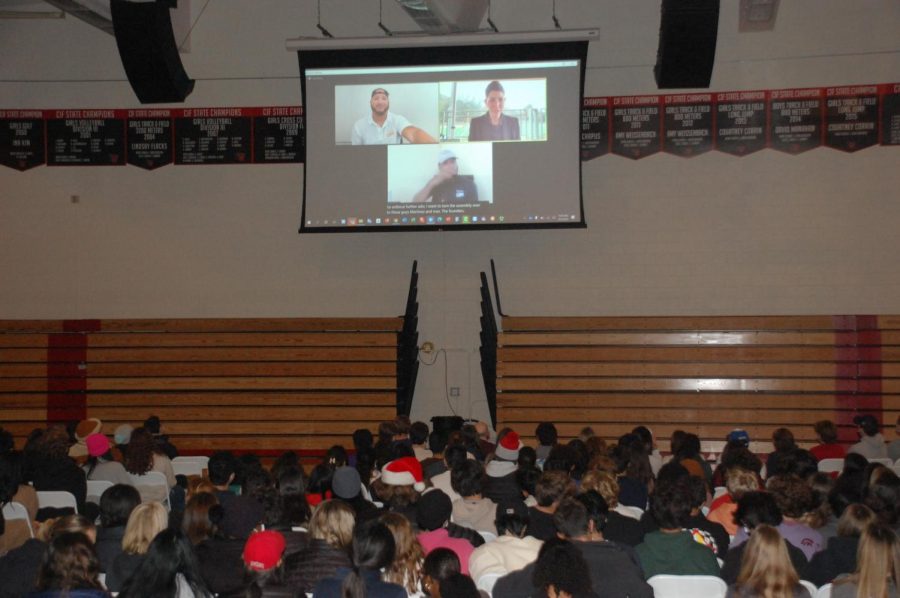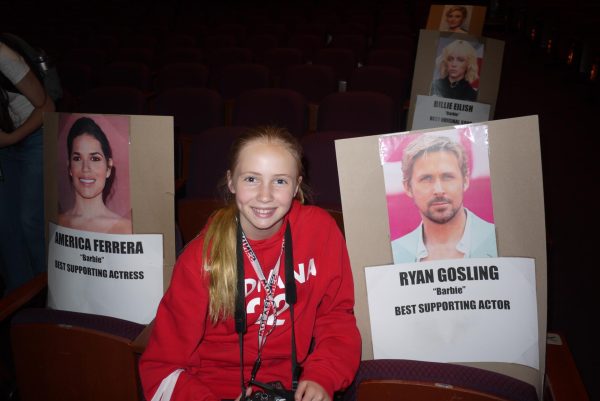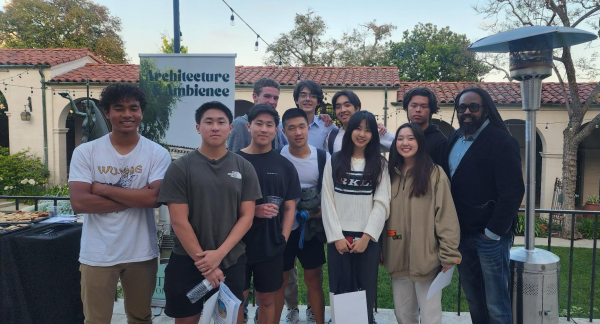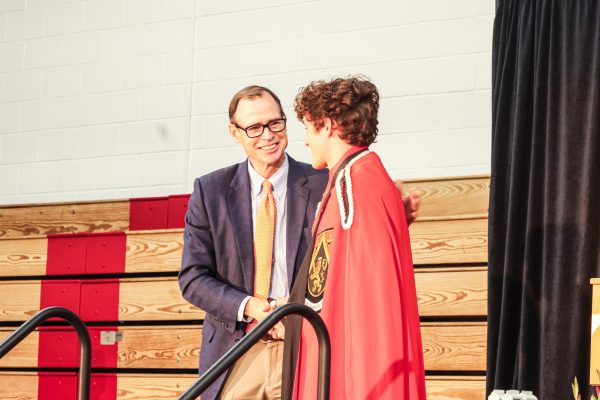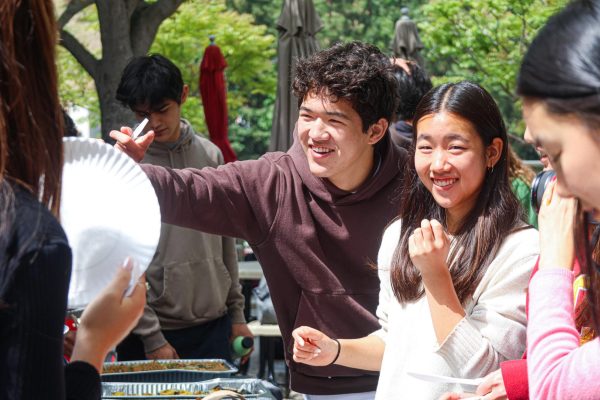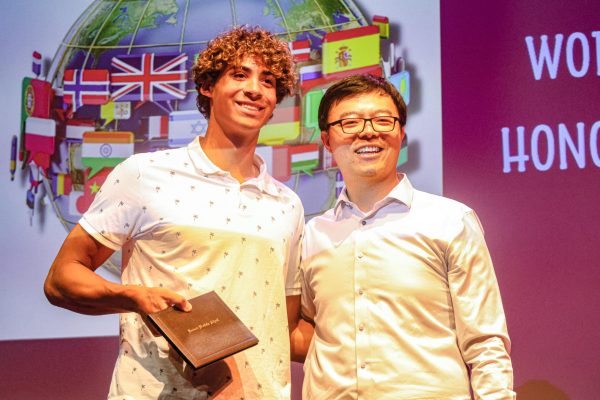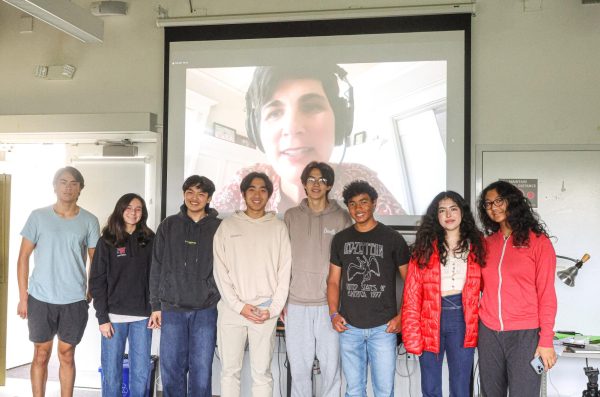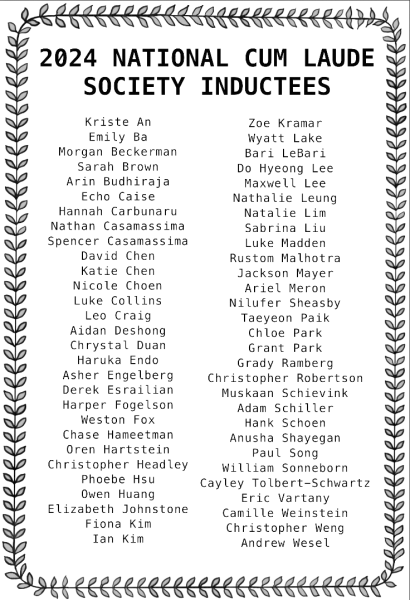Community hosts ASL interpreters
During the Community Flex time, students watch a projected Zoom meeting where Maxey and Colson expand on DEAFinitely Dope’s mission.
December 7, 2021
DEAFinitely Dope Founder Matt Maxey and Brand Representative Martise Colson shared their experiences as members of the deaf community and described their work as American Sign Language (ASL) music interpreters via Zoom during a Community Flex Time on Dec. 7.
Maxey said he founded DEAFinitely Dope in 2014 to provide support to those with hearing loss. DEAFinitely Dope posts videos with ASL translations of current songs. Maxey said the organization’s content primarily focuses on underground hip-hop, and he said their work has attracted attention from Chance the Rapper, GQ, ABC News and more.
During the assembly, Maxey verbally translated Colson’s ASL on occasion, while other times Maxey and Colson engaged in simultaneous communication, a process in which they spoke and signed at the same time.
Colson said he first realized how deafness made him different than his peers when he began elementary school.
“Because my parents are also deaf, I grew up never using my voice,” Colson said. “I remember signing as I was walking down the hall. Everyone looked at me like I was crazy. ‘What, you can’t hear? You talk kind of different. What are you doing with your hands?’ And I told them that I’m deaf.”
Maxey said DEAFinitely Dope is a way for the deaf community to gain visibility, and he said it bridges the gap between those who can and cannot hear.
I’m just trying to see how I fit in. And music can unite us.
— DEAFinitely Dope Founder Matt Maxey
“I’m just trying to see how I fit in,” Maxey said. “I understand that I have a hearing loss and I use ASL, but I also [have the ability to] talk. [Hearing and deaf people] are the same but also not the same. And music can unite us.”
Maxey said he considers himself both an interpreter and performer when translating music lyrics to ASL.
“It depends on the day or night,” Maxey said. “I probably am at least more of an interpreter, because I’m rapping about someone else’s story. But I do enjoy doing performances.”
Toward the end of the assembly, Colson and Maxey performed Ed Sheeran’s “Bad Habits” in ASL and answered questions submitted by students, including middle school ASL Club co-leaders Eva Park ’25 and Jordan Ambrosino ’26, asked questions regarding DEAFinitely Dope.
Sabine Thomas ’23 said she found the performance of “Bad Habits” to be a memorable part of the assembly.
“[Colson and Maxey] had really high energy, and it was enjoyable to watch them and listen to the song at the same time,” Thomas said. “Even though I don’t understand ASL, it was really cool to watch.”
When the assembly concluded, students were encouraged to enter a free giveaway with the chance to win online ASL lessons from DEAFinitely Dope.
Yearbook and Publications Teacher Jen Bladen said she hopes the excitement from the event sparks increased interest in ASL education on campus.
“I think we might have the interest now to bring the [ASL] Club back,” Bladen said. “An even better outcome would be if we can offer ASL as a language at [the school].”
Counselor and ISIR Teacher Michelle Bracken, who organized the logistics of the Community Flex Time, said she hopes students came away from the assembly with a greater awareness of the challenges deaf people face.
“While the communication [between those who can and cannot hear] is different, everyone still has a story to tell that should be heard,” Bracken said. “I also hope this starts a conversation about ableism in general and how to be aware of these differences and advocate for inclusion.”































